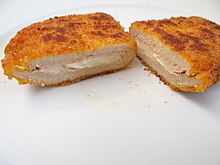**History and Ownership**:
– Quorn was launched in 1985 by Marlow Foods, a joint venture between Rank Hovis McDougall (RHM) and Imperial Chemical Industries (ICI).
– Industrial production of bakers yeast started in the early 1900s, leading to the development of Fusarium venenatum biomass for human food using a 40m air-lift fermenter.
– AstraZeneca acquired Marlow Foods in 1993, Premier Foods acquired Quorn in 2005, and later, Exponent Private Equity, Intermediate Capital Group, and Monde Nissin Corporation acquired Quorn in subsequent years.
– The ownership changes did not hinder Quorn’s growth and popularity, showcasing the increasing demand for meat alternatives.
**Retail History and Marketing**:
– Quorn was first marketed in 1985 and entered distribution in the UK in 1993, expanding to Europe and North America.
– The brand was marketed after a ten-year evaluation program and sold to Montagu Private Equity in 2003.
– Various marketing campaigns have been undertaken, with endorsements from sports personalities like Ryan Giggs, Sally Gunnell, and Mo Farah.
– Marketing efforts have focused on promoting Quorn as a healthy alternative, with a particular emphasis on fitness and a healthy lifestyle.
**Products and Innovation**:
– Quorn offers various ready-to-cook forms like cubes and minced meat, along with a range of chilled vegetarian meals, pizzas, lasagne, and more.
– By 2005, Quorn held a significant market share in the UK and expanded to stores in Europe, North America, and Australia.
– The introduction of vegan options and gluten-free products expanded Quorn’s market reach, with successful launches like the Quorn Vegan Burger and vegan sausage roll filling sold by Greggs.
– Quorn’s innovations have influenced the development of meat alternatives and highlighted the trend towards plant-based options in the food industry.
**Controversies and Nutrition**:
– Controversies have surrounded Quorn, with disputes over labeling, allergic reactions, and adverse effects, leading to debates about its safety and health implications.
– Despite controversies, Quorn has maintained its market presence and popularity, with its nutritional value recognized by regulatory bodies.
– Quorn products are made from mycoprotein, offering nutritional benefits as a meat substitute and certified for their carbon footprint.
– Some consumers reported problems after consuming Quorn, including allergic reactions and asthma attacks, raising concerns among advocacy groups.
**Mycoprotein Patent Expiration and Industry Impact**:
– EU patents for mycoprotein expired in 2010, allowing legal production of mycoprotein products.
– Marlow Foods maintains ownership of the Quorn brand and has highlighted the unique fermentation method used in production.
– Quorn’s success has led to collaborations with major food chains, boosting profits for food retailers and influencing the development of meat alternatives.
– Quorn’s impact on the food industry has highlighted the growing trend towards plant-based options, with successful partnerships like the one with Greggs resulting in the launch of innovative vegan products.
Quorn is a brand of meat substitute products, or the company that makes them. Quorn originated in the UK and is sold primarily in Europe, but is available in 11 countries. The brand is owned by parent company Monde Nissin.
 | |
 A Quorn Cordon Bleu | |
| Company type | Private |
|---|---|
| Industry | Food |
| Founded | 1985 |
| Founder | Marlow Foods Ltd (JV between RHM & ICI) |
| Headquarters | Stokesley, North Yorkshire, |
Area served | Global |
| Products | Meat alternatives |
| Owner | Monde Nissin Corporation (2015–present) |
| Website | www |
Quorn is sold as both a cooking ingredient and as a meat substitute used in a range of prepackaged meals.
Though all Quorn products offer vegetarian options, not all offer vegan options. All Quorn foods contain mycoprotein as an ingredient, which is derived from the Fusarium venenatum fungus. In most Quorn products, the fungus culture is dried and mixed with egg white, which acts as a binder, and then is adjusted in texture and pressed into various forms. The vegan formulation uses potato protein as a binder instead of egg white.
